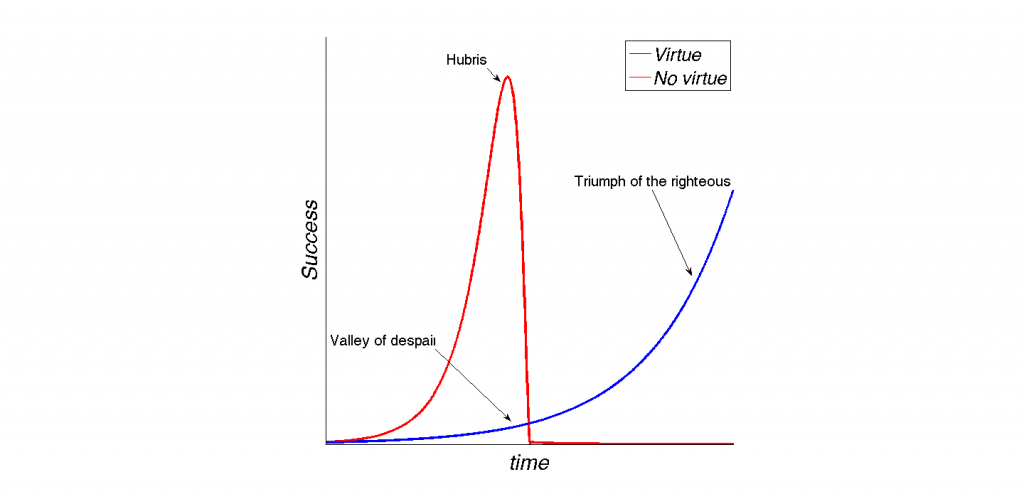Few things are more discouraging and galling to the righteous than the raging success of the obviously undeserving and unworthy. This can be particularly dispiriting early in life. The wise will recognize that virtue and non-virtue have fundamentally different time constants. Lack of virtue is eventually its own undoing. The catch lies in the “eventually”. It might take a while. But it will happen, due to the inherent nature of virtue and the lack thereof. Assuming history is ergodic.
And therein lies the consolation.
That this is necessarily so stems from it being a corollary of the notion of a great filter. If great power does not go hand in hand with an equally great sense of ethics and self-restraint, it will ultimately prove self-destructive. This can be observed in many systems, be they civilizations, technology, lottery winners or celebrities. The key is to minimize the damage – perhaps by non-association – when the inevitable collapse happens. Also, to stick around. Given the above situation, this is not easy, but unavoidable if one doesn’t want to end it on a down.
Put differently, the path of virtue is long and arduous, but sustainable. Taking shortcuts helps those who are lucky in the short term, but devastates them in the long run all the same. Solace is provided by Warren Buffet’s life story, which essentially shows that exponential growth can add up to one giant and irresistible snowball.
I would like to end this piece by pointing out that I do not believe the great filter to be a plausible explanation of the Fermi paradox. Mitochondria are a much more parsimonious explanation, leading credence to an “early filter”. Then again, parsimony ought not necessarily be invoked when explaining complex phenomena.

